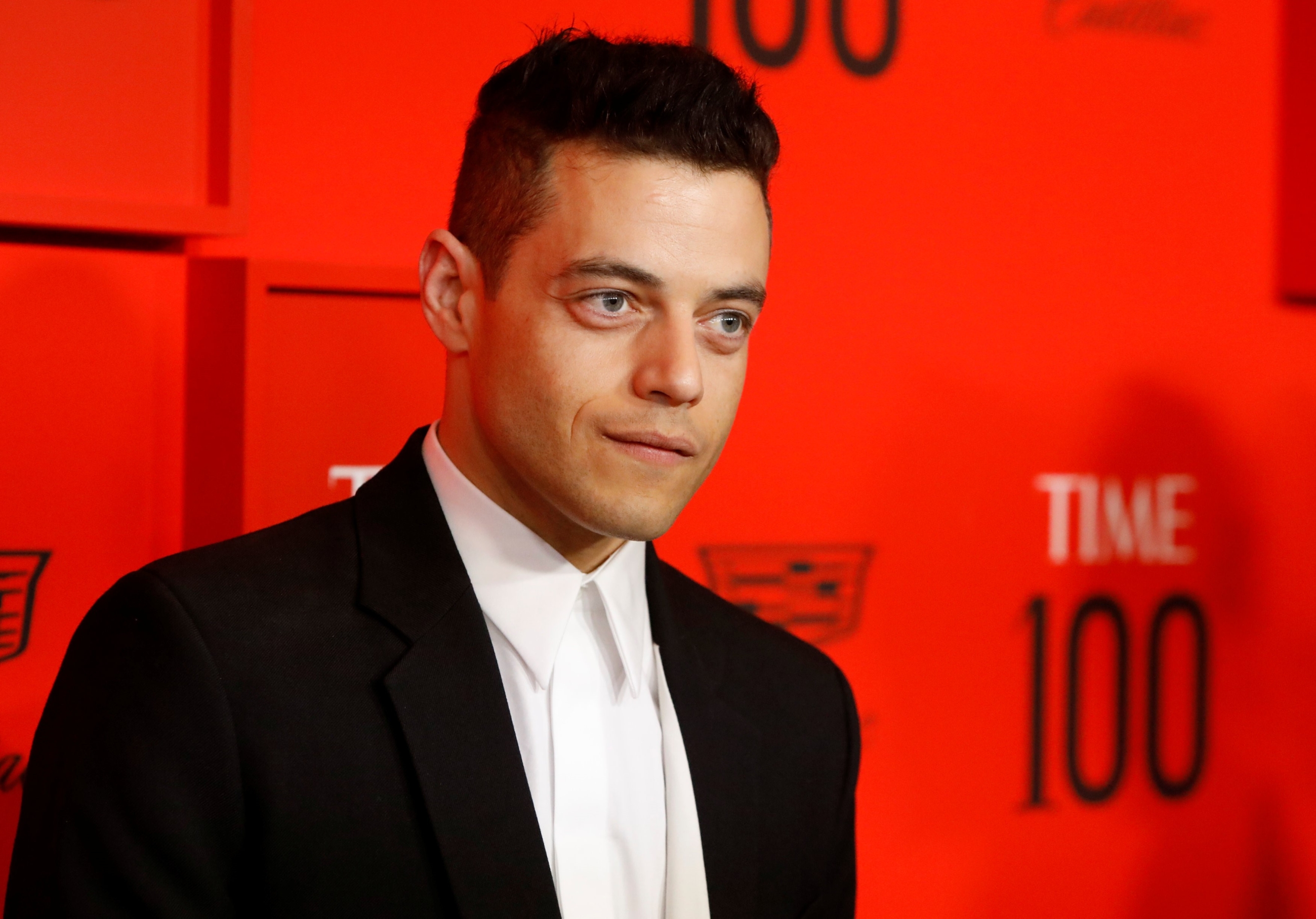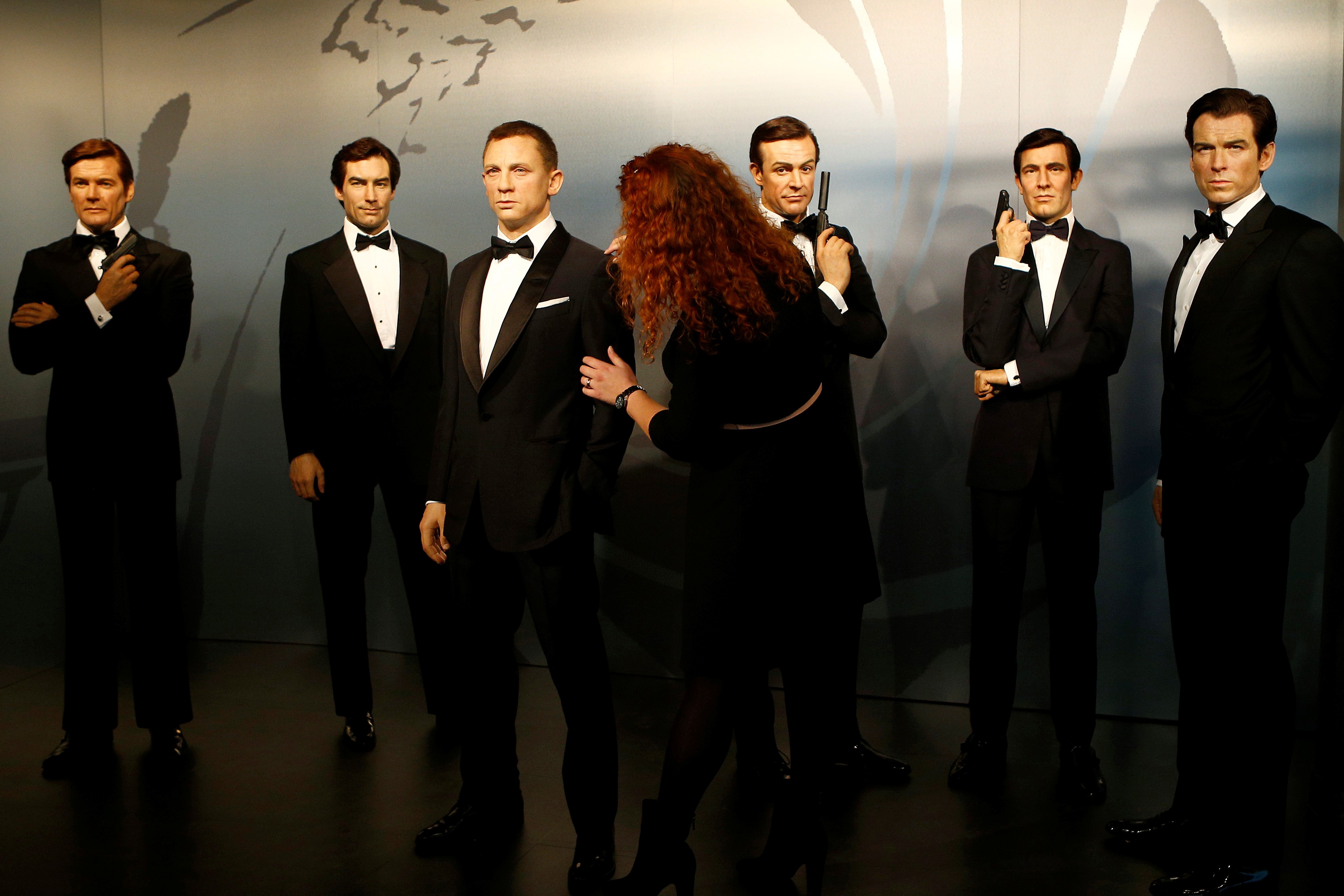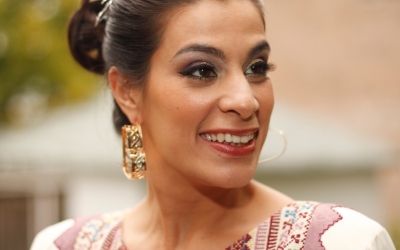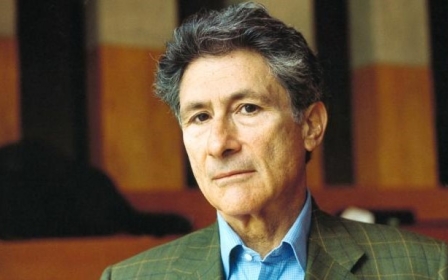Rami Malek cast as Bond villain? Hollywood habits die hard

Last week, it was announced - to great glee - that Egyptian-American actor and Oscar winner Rami Malek will play "a mysterious villain armed with dangerous technology" opposite Daniel Craig in the 25th James Bond film, slated for release next year.
BBC Entertainment tweeted charmingly: “Bismillah! Oscar-winner Rami Malek has been cast as the latest Bond villain." Appearing on “Good Morning America” to discuss the news as the audience applauded and swooned, the Bohemian Rhapsody star remarked that there have been “such great villains in film history”.
But, come to think of it, there’s also such a history of villainising Arabs in film.
'Be ignored, or be stereotyped'
Now, it’s not my job to weigh in on the debate about whether Malek’s Coptic Christian identity should prevent him from being claimed by the Arabs.
New MEE newsletter: Jerusalem Dispatch
Sign up to get the latest insights and analysis on Israel-Palestine, alongside Turkey Unpacked and other MEE newsletters
The fact is that his heritage lies in what is now often referred to as the Arab-Muslim world - and that, regardless of how beloved a Bond villain Malek may be, this is as good an opportunity as any to reflect on Hollywood’s treatment of characters from that world.
A February cover story on Malek for GQ Middle East muses that: “In the West, actors of Middle Eastern descent typically have two options: be ignored, or be stereotyped." This was initially the case with Malek himself, who was "a magnet for one-dimensional roles playing terrorists, brutes, and a smorgasbord of Arab caricatures".
Regardless of how beloved a Bond villain Malek may be, this is as good an opportunity as any to reflect on Hollywood’s treatment of characters from that world
After playing a suicide bomber in the Fox television series 24, Malek says he decided the typecasting was "bullshit" and that he would no longer respond to "any calls that come about playing Arabs or Middle Easterners in a negative light".
Incidentally, 24 was singled out by the late scholar Jack G Shaheen - author of, among other titles, Reel Bad Arabs: How Hollywood Vilifies a People - as one of the pioneers of the post-9/11 "vilification process" of America’s own Arabs and Muslims, often portrayed as “clones of Osama bin Laden”.
Both 24 and the Showtime series Homeland, Shaheen wrote, “provid[ed] a means for the national security state to publicise fantasies of an Arab Muslim terrorist threat”.
As for pre-9/11 vilification, Shaheen’s New York Times obituary in 2017 noted that “his analysis found that of about a thousand films with Arab or Muslim characters made between 1896 and 2000, only 12 portrayed them positively”.
Disney strikes bad note
Reel Bad Arabs also walks readers through films like Disney’s animated feature Aladdin (1992), the opening lyrics of which include:
Oh I come from a land,
From a faraway place,
Where the caravan camels roam.
Where they cut off your ear,
If they don’t like your face,
It’s barbaric, but hey, it’s home.
In 1993, the fourth and fifth lines were changed after protests to...
Where it's flat and immense,
And the heat is intense,
But to be sure, it’s never too early to instil upbeat bigotry and xenophobia in children.
Also dissected is Steven Spielberg’s Back To The Future (1985), in which the protagonists succeed in “duping and decimating nuclear Arab terrorist 'bastards'", one of them a Libyan who “spouts garbled mishmash".
This despite the fact that - then as now - "the only Mideast nation with nuclear weapons… was Israel".
Edward Said’s Orientalism, first published in 1978, also touched on the role of film and TV in crafting Western perceptions of the Arab “other”.
One wonders if the film industry will ever catch up to reality
The onscreen Arab, Said wrote, was "associated either with lechery or bloodthirsty dishonesty. He appears as an oversexed degenerate, capable, it is true, of cleverly devious intrigues, but essentially sadistic, treacherous, low".
But back to the future, and Malek’s impending role as Bond villain (bismillah!). At this point, there are no indications that his character is even Arab - and yet there may still be some good old Orientalism at play.
Good old orientalism?
Obviously, Malek the Egyptian-American is not extremely eligible for the camel-riding, ear-slicing “barbarity” of certain Orientalist representations. But many fans appear to have imputed to him a degree of the “exotic sensuousness” discussed by Said - one of myriad factors that have traditionally contributed to a “complex hegemony” of Occident over Orient.
Granted, exoticisation is a far subtler and less straightforward means of facilitating imperial conquest than, say, the cinematic propagation of dehumanising stereotypes of evil terrorist enemies and uncivilised brutes.
In the United States, the latter practice has helped to sow public enthusiasm for projects like bombing Arabs to smithereens.
And since Arabs and Muslims have already been firmly cast in the role of terrorists, the US and its Israeli buddy are free to terrorise them at will without jeopardising their own self-appointment as universal good guys.
Speaking of terrorists, one wonders if the film industry will ever catch up to reality - where we happen to be witnessing, as the New York Times recently put it, a “surge of white supremacist and xenophobic terrorism in the West that has frequently targeted Muslims, immigrants and other minority groups”.
For his part, ex-Department of Homeland Security official George Selim stresses that, “from 2009 to 2018, right-wing extremists have been responsible for 73 percent of the extremist murders in the United States”. Islamist extremists, on the other hand, were behind 23 percent.
The reel problem
But Hollywood habits, it seems, die hard - and not only when it comes to the cinematic Arab villain-in-chief.
In the case of 007 in particular, controversy arose back in 2015 when James Bond author Anthony Horowitz opined that prominent black actor Idris Elba was “too street” to play Bond.
Now, as the latest instalment of the spy franchise gets underway, it would be ludicrous to decree that anyone who is remotely Arab cannot possibly be cast as a “mysterious villain” for reasons not involving malevolent Orientalist stereotypes.
But it would also be ludicrous to write off any consideration of the historical and political context affecting Middle Eastern actors and characters.
Since the award-winning Malek - celebrated for rejecting and going beyond the traditional formulas - has also remained on the receiving end of adoration as “heartthrob”, “sex symbol”, and generally “adorable” guy, it’s safe to assume that, even while playing a Bond villain, he’ll retain this status.
One danger of the current head-over-heels love affair with the Egyptian-American actor, however, is that Americans can delude ourselves into thinking we don’t inhabit a putridly racist society.
And that, of course, is not reel good at all.
The views expressed in this article belong to the author and do not necessarily reflect the editorial policy of Middle East Eye.
Middle East Eye delivers independent and unrivalled coverage and analysis of the Middle East, North Africa and beyond. To learn more about republishing this content and the associated fees, please fill out this form. More about MEE can be found here.








